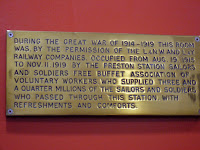
Like his more successful book, The Beach, Coma has short, punchy chapters. No page numbers though. But that
doesn’t matter as it an exceptionally short book and takes less than a day to read. The plot is well written and has some interesting illustrations. (The images clearly signify something, but I have not figured out what that is yet.)
So to the plot; Carl is in a coma after a nasty late night incident on the underground. What drives the plot is not any mystery surrounding his story or any connection to the assault which results him being in a coma. Rather it is the process through which Carl deals with being in a coma and his attempt to wake up.
Reading this novel reminds one of the Spanish film “
Open your eyes” and The Jam’s song, “
Down in a tube station at midnight.” Not sure Garland does anything with this story to justify the price tag of the book, especially as it is very short, but it is entertaining enough. Furthermore, Garland has the ability to make brilliant insights and write them well: to whit “Waking was the most reliable part of a dream, as built into dreams as death into life.” This book gets a generous 3/5.





